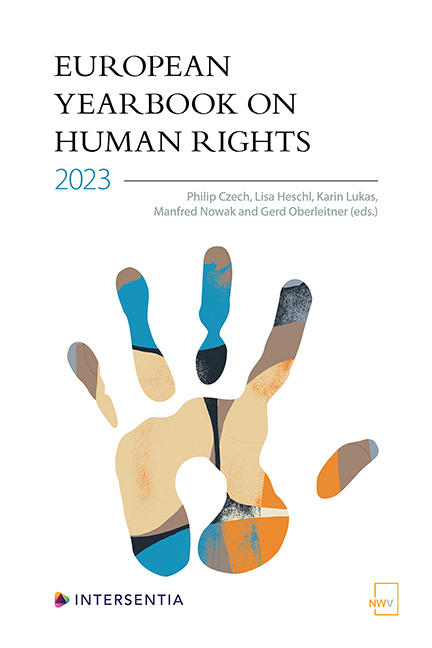Rethinking the Limits of Artistic Freedom: An Interdisciplinary Perspective on where to Draw the Line
Published online by Cambridge University Press: 04 April 2024
Summary
ABSTRACT
In the name of morality, and under the auspices of political movements such as #MeToo and Black Lives Matter (BLM), novel demands for restrictions in artistic matters are on the rise, laying bare the historically relentless debate about the limits of artistic freedom. This paper examines the legal framework of artistic freedom and its limitations, on the basis of the European understanding of human rights, in particular in the context of politically and ethically dialectic concerns. Several case studies illustrate how creative freedom and its boundaries have been repeatedly challenged in the past, and how they are being called into question today. An exploration of the historic evolution of the artist's role and standing in society, from the Renaissance to the present day, introduces the notion of ‘artist's privilege’ , and links this to the present-day discords regarding the relation between the constitutional protection of artistic freedom, politics and morality. As such, the recent cases of ‘ethical art-boycott’, in Europe and the US, highlight how, as perceptions around contentious topics such as race and gender shift , the art world is confronted with the most fundamental strife – telling right from wrong; or, in the case at hand, politically correct from politically incorrect. In this sense, the controversies discussed, and deliberations on their implications in the legal sphere and beyond, bear witness to the cultural struggle between protecting our freedoms, addressing inequalities, and moving towards a fairer society.
INTRODUCTION
Currently, more and more restrictions in artistic matters are being demanded in the name of ethics or morality, under the auspices of political movements such as #MeToo and Black Lives Matter (BLM). Paintings are to be taken down, literary works are to be ‘cleaned’, film scenes to be cut, exhibitions prevented, and plays cancelled. Addressing unjust power structures and imbalances in the art world, and in society in general, controversial works of art, or those created by ethically reprehensible or even (allegedly) criminal artists, are to be withdrawn from public view. These debates, which have affected the art world across Europe and the US, are framed under terms such as ‘cancel culture’ and ‘political correctness’, and are viewed by some as an outright ‘culture war’. What lies at the base of these trends is the historically relentless debate about the limits of artistic freedom and, beyond that, the role of the artist in society.
- Type
- Chapter
- Information
- European Yearbook on Human Rights 2023 , pp. 229 - 260Publisher: IntersentiaPrint publication year: 2023



